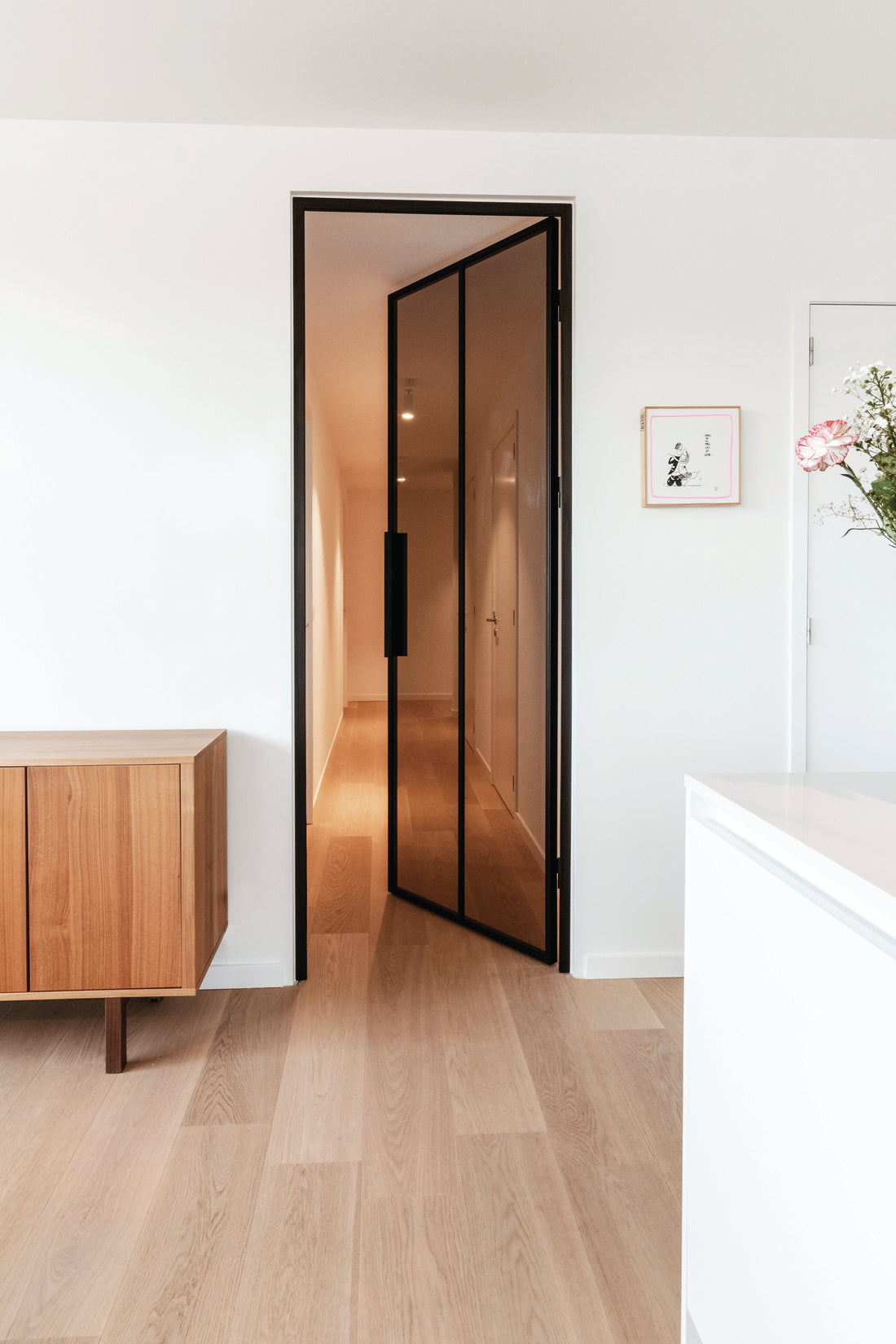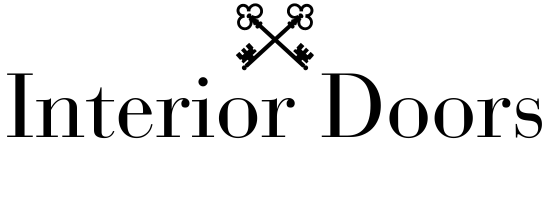
Tinted Glass in Steel Doors: Style Meets Privacy
Samuel MorrisTinted Glass in Steel Doors: Style Meets Privacy | Quick Guide!
In the world of contemporary architecture and interior design, steel doors have firmly established themselves as a premium choice for both residential and commercial spaces. Enter tinted glass—a powerful design element that balances form and function.
View OTIF Full Steel Collection - Click Here

This comprehensive guide explores everything you need to know about tinted glass in steel doors: its advantages, privacy benefits, stylistic applications, and ideal use cases. Whether you're an architect, a developer, or a homeowner with a keen eye for design, this blog will help you decide whether tinted glass in steel doors is the right move for your next project.
What Is Tinted Glass?
Tinted glass is produced by adding metal oxides or films to standard glass, changing its appearance and altering how it interacts with light. Depending on the method and materials used, tinted glass can:
- Reduce visible light transmission
- Lower glare
- Minimise UV and infrared radiation
- Obscure views while still allowing daylight
- Create distinctive colour hues (grey, bronze, blue, green, etc.)
In steel doors, tinted glass transforms a typical glazed panel into a stylish and high-performance surface.
View OTIF's Tinted Glass Prices - Click Here

Why Use Tinted Glass in Steel Doors?
Steel-framed doors are often used to create a seamless connection between spaces, with glass acting as a visual bridge. However, in some settings—such as bedrooms, bathrooms, offices, or high-traffic public areas—you might want to obscure views without compromising on style. That’s where tinted glass becomes a valuable solution.
1. Privacy Without Sacrificing Light
Tinted glass gives you moderate to high levels of visual privacy while still permitting light to flow through. Unlike opaque panels or solid doors, it allows natural illumination to persist, making rooms feel more open, airy, and inviting.
2. Enhanced Aesthetic Appeal
Whether it’s a smoky grey or a rich bronze hue, tinted glass offers a sophisticated look that complements the bold lines of a steel frame. It elevates your design, adding contrast and texture to what would otherwise be clear glass.
3. Glare and UV Reduction
Tinted glass can reduce the intensity of sunlight entering a space. This is especially useful in sun-exposed environments where glare can become a problem—or where furnishings, art, or fabrics need UV protection.
4. Heat Control and Energy Efficiency
Some tints reduce solar heat gain, helping to maintain a cooler environment in summer months. In steel-framed glass doors with large surface areas, this can significantly reduce HVAC usage.

Types of Tinted Glass Used in Steel Doors
There isn’t a one-size-fits-all tint. Different glass treatments serve different purposes—so understanding the main categories can help guide your decision.
1. Body-Tinted Glass
This is glass that’s coloured during the manufacturing process by adding metal oxides. Common options include:
- Grey: Neutral tone, good for glare reduction, and very versatile
- Bronze: Warmer aesthetic, often used in heritage or rustic designs
- Blue/Green: Softer hues often used in contemporary builds with natural elements
2. Reflective Tinted Glass
Also known as solar control glass, this includes a metallic coating that reflects heat and UV light. It also offers a mirror-like appearance from the outside, increasing daytime privacy.
3. Laminated Tinted Glass
Two or more panes of glass with a tinted interlayer (often PVB). Offers privacy, security, and sound reduction in one go. Can also meet certain fire-rated or acoustic performance standards.
4. Film-Applied Tinted Glass
More cost-effective, film-based tints can be applied to clear glass post-manufacture. While not as durable as body-tinted or laminated glass, it allows for easier retrofitting or changing tints down the line.

Where Tinted Glass in Steel Doors Works Best
The balance of privacy and aesthetics makes tinted glass ideal in a wide range of settings—residential, commercial, and mixed-use.
1. Residential Interiors
- Bathrooms: Provide modesty while allowing light into ensuite or shared washroom areas.
- Bedrooms: Used for door panels leading to balconies, terraces, or shared corridors.
- Home Offices: Minimise distractions from the rest of the household while keeping a bright working environment.
2. Open-Plan Living Areas
In homes with open layouts, tinted steel doors or partitions can subtly define zones without disrupting light flow—ideal for separating kitchens, lounges, or hallways.
3. Hospitality & Retail
- Hotel Rooms: Especially in boutique or luxury hotels where aesthetics and privacy are both key.
- Restaurants & Bars: Maintain ambiance with moody tinted panels that create intimacy without closing off space.
- Retail Spaces: Frame premium areas or back-of-house zones stylishly while reducing visibility.
4. Commercial Offices
Privacy becomes a major factor in boardrooms, executive offices, or wellness rooms. Tinted glass offers a modern and professional look while reducing visibility from outside.

Combining Tinted Glass with Other Features
Tinted glass in steel doors isn’t limited to a single function. It can be combined with:
1. Acoustic Glazing
For areas where noise reduction is needed (like offices or media rooms), tinted acoustic glass provides both sound control and visual discretion.
2. Fire-Rated Glass
Select manufacturers offer fire-rated steel doors with tinted fire-resistant glazing—ideal for commercial builds where safety codes meet architectural design.
3. Smart Glass Technology
Pair tinted glass with switchable privacy glazing (also known as smart glass) to instantly change transparency with the touch of a button.

Design Considerations for Tinted Steel Doors
Frame Finish and Colour
Choose a complementary or contrasting steel finish depending on the glass tint. Black powder coat frames pair well with grey and bronze tints. Lighter frames (e.g., custom white or champagne finishes) can soften bolder glass hues.
Glazing Configuration
Decide whether to opt for:
- Full-height glazed panels
- Multi-pane (Georgian-style) layouts
- Asymmetric or custom configurations
- The frame layout should suit both the scale of the room and the tint intensity.
Lighting Conditions
Dark tints in north-facing rooms may make spaces feel dim. In such cases, lighter grey or bronze tints can offer privacy without sacrificing brightness.

Benefits of Tinted Glass in Steel Doors at a Glance
| Benefit | Description |
|---|---|
| Privacy | Blocks visibility without blocking light |
| Design Appeal | Enhances modern, industrial, or minimalist interiors |
| UV Protection | Helps prevent fading in furnishings |
| Glare Reduction | Improves comfort in bright or south-facing spaces |
| Energy Efficiency | Lowers solar heat gain in glazed doors |
| Versatility | Works across residential, commercial, and hospitality sectors |
Tinted Glass vs Other Privacy Glazing
Wondering how tinted glass compares to other options?
| Glazing Type | Appearance | Privacy | Light Transmission | Best Use |
|---|---|---|---|---|
| Tinted | Stylish, coloured | Medium | High (varies by tint) | Stylish spaces needing partial privacy |
| Frosted | Opaque/Matte | High | Medium | Bathrooms, doors with high privacy needs |
| Reeded/Fluted | Textured | Medium-High | Medium | Retro or Art Deco-inspired interiors |
| Switchable Smart Glass | Clear-to-opaque | Adjustable | High to Low | Premium offices or multi-use rooms |
Common Myths About Tinted Glass in Steel Doors
"It makes spaces too dark"
Not necessarily. Modern tints are available in subtle hues that strike the right balance between light and shade. It’s all about choosing the right level of tint.
"It’s only for exteriors"
Far from it. Interior steel doors with tinted glazing are a rising trend in high-end design, particularly for home offices and bathrooms.
"You can’t see through them at all"
Most tints obscure, not eliminate visibility. The right glass will allow silhouettes and light to pass while preventing detailed views.

Real-World Applications: Design Inspiration
1. Luxury Apartments in London
A Knightsbridge penthouse installed bronze-tinted steel doors between the master bedroom and walk-in wardrobe. Result: luxury, warmth, and privacy.
2. Creative Agencies in Shoreditch
A marketing firm used grey-tinted steel partitions to separate work pods, maintaining a collaborative atmosphere without compromising privacy.
3. Boutique Hotel in Bath
Reeded and tinted glass steel doors were installed between the bedroom and ensuite bathrooms—offering a blend of Art Deco charm and discretion.
OTIF Steel Doors with Tinted Glass
At Interior Doors Ltd, we work with OTIF Steel, a premium UK manufacturer offering bespoke tinted glass options within their high-performance steel frames.
OTIF's tinted glass options include:
- Grey and bronze in laminated or double-glazed formats
- Fire-rated variants for commercial builds
- Acoustic options for quiet zones or boardrooms
- Custom etching or patterning on tinted panels
All doors are made to order, with your choice of colour, ironmongery, and handle configuration. With showpieces available in our Berkshire showroom, you can view real tinted glass doors in action.

Conclusion: Is Tinted Glass in Steel Doors Right for You?
If you're looking to:
✅ Maintain light flow while improving privacy
✅ Add a stylish, moody aesthetic to interiors
✅ Reduce glare, solar gain, or UV exposure
✅ Enhance the value and appeal of a property
Then tinted glass in steel doors is a smart investment—especially when quality and appearance matter.
Whether you're outfitting a London penthouse, a boutique hotel, or a modern home office, tinted steel doors offer a rare combination of beauty, function, and architectural integrity.
Visit Our Showroom
Want to experience tinted glass steel doors in person? Visit our Berkshire showroom to view live examples from OTIF Steel and consult with our team on design, measurements, and installation.

Book your design consultation today and take the first step toward stylish privacy.
